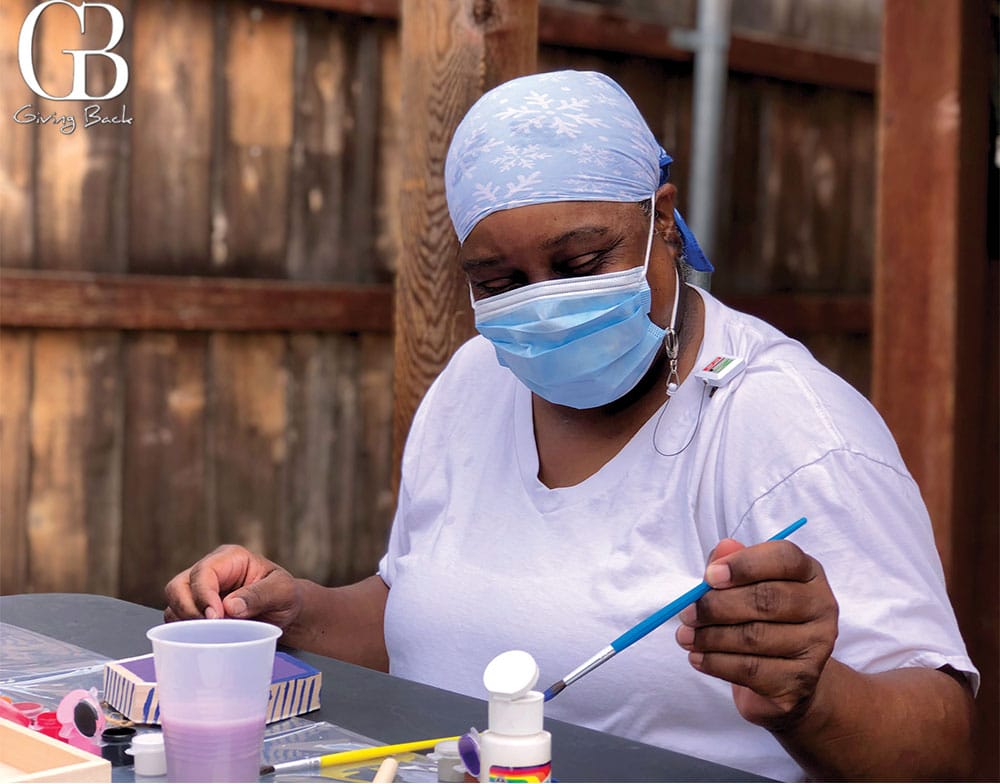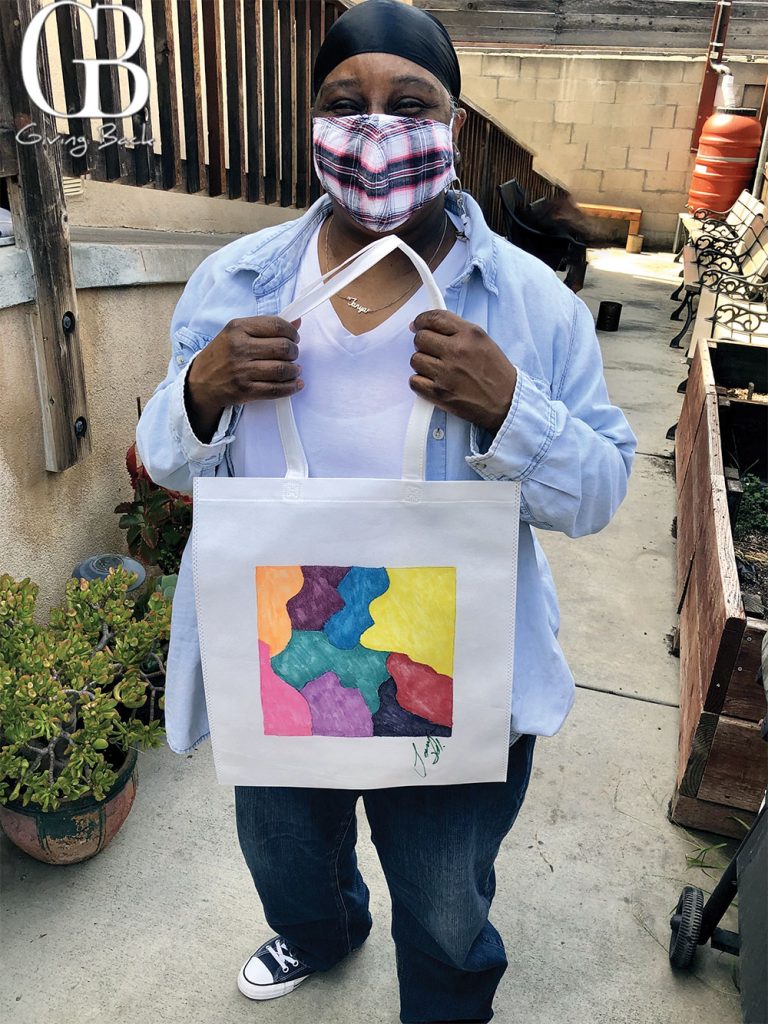A Safe Haven from Homelessness

Tanya had been sleeping on the streets for years. In and out of transitional housing and shelters and struggling against a form of schizophrenia. Tanya had used drugs to self-medicate, was off her medication, and had no support to make a change.
She found the support she needed at the Uptown Safe Haven in Bankers Hill, Episcopal Community Services’ homeless transitional housing program. Now after two years at the Safe Haven, Tanya is on her path to recovery, working part-time in the kitchen at Scripps Mercy Hospital, taking her prescribed medication, and the best news: she is moving into her own apartment.
“I live with people who understand where I have been and what I want to do. The staff try to make our days fun and interesting; they are supportive and easy to talk to. The program gives so much to the residents, and right now, I am able to save for my own place,” Tanya shared recently.
The mission at ECS is to break barriers and transform communities through programs rooted in a tradition of action and faith in God. The Safe Haven is breaking barriers by meeting people where they are, and walking with them to recovery and independence.
In 2022, the San Diego Regional Task Force on the Homeless conducted its annual “Point in Time Count” and found 8,427 individuals experiencing homelessness across San Diego County, a 10 percent increase from the previous count. ECS’ Safe Haven has been on the front lines of the homelessness crisis since 2001. As National Hunger & Homeless Awareness Week approaches (November 12-20, 2022), ECS continues to raise awareness about the need for services tailored to the needs of individuals experiencing homelessness.
A “Safe Haven” is housing designed for individuals experiencing homelessness and living with severe mental illness and/or substance use disorders. ECS utilizes a systemic and whole-person approach that tailors support according to residents’ development history and their experiences with trauma and re-traumatization. Trauma is a common experience for Safe Haven residents, which is reflected in their coping skills and self-care practices. Rather than see residents as “resistant,” staff are trained to recognize their self-protecting behaviors and use safety, empathy and validation to build trusting relationships.
To operate the Safe Haven, ECS collaborates with the Community Research Foundation, the San Diego Housing Commission, the San Diego County’s Health and Human Services Agency, and a host of community agencies that provide support services to uplift residents to achieve their full potential. The program hosts weekly community meetings, art workshops, group meals, pet therapy sessions, monthly barbecues, day trips and birthday and holiday celebrations to strengthen residents’ interpersonal relationships. Additionally, the program staff reinforces independent living skills with ongoing workshops on personal hygiene, personal boundaries, self-care, cooking/meal prep, budgeting, laundry skills, resiliency, communication skills, conflict resolution, decision-making and social skills. A clothing bank with new socks, underwear, t-shirts, and sweatshirts is also available to residents.
To learn more about the Safe Haven, and Episcopal Community Services’ full breadth of services, visit www.ecscalifornia.org.







